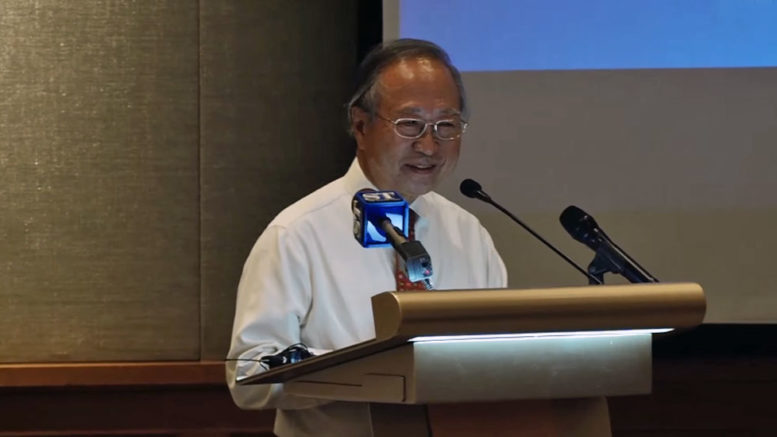Why did Tan Cheng Bock still want a clear answer from the government even his case has already disclosed.
I refer to the article “TAN CHENG BOCK: I WON’T NEED TO PAY LEGAL FEES BUT GOVT MUST STILL ANSWER OUR QUESTIONS” (allsingaporestuff, Sep 26).
It states that “My case has finally concluded with no legal costs payable to the Government. At first, the Government wanted the Court to order $30,000 costs against me. But my lawyers vigorously resisted and argued for a “public interest cost order” instead. After reading our submissions, the Government changed their mind and consented to “no order as to costs”.”
This is one rare occasion which I must say that in all fairness – I have to agree with the Government wholeheartedly.
You see – by waiving the $30,000 legal costs (which it has made many Singaporeans pay in the past) is already a very gracious, kind and very rare gesture.
So, kudos to the Government for being so magnanimous.
As to “Yet other questions remain unanswered by the Government. For instance, why did the Government tell Parliament they took AG’s advice if AG’s advice was irrelevant? Why invite MP Sylvia Lim to go to Court if it was, all along, a policy decision? Shouldn’t reasons for policy decisions be explained in Parliament ?” – in the hustle and bustle of Parliamentary debate – it may be quite normal for the Government to say something along the lines of “if you not happy, sue me lah”.
So, what’s wrong with this? After all, it is a good Government that constantly reminds the people of their rights to sue the Government.
In this connection, in fact, I saw in Parliament once that even a Minister said that he waived his rights to Parliamentary privilege (you cannot be sued for what you say in Parliament) – and invited the opposition to sue him.
You cannot deny that we have such good and fair Ministers in Government.
With regard to “For instance, why did the Government tell Parliament they took AG’s advice if AG’s advice was irrelevant?
We heard the AG tell the Court: “PM never said that the AG advised PM to start the count from President Wee. What PM said is that the AG advised (that) what the Government was proposing to do was legitimate” and the AG never advised the Government that President Wee was the 1st Elected President. The start of the count was purely a policy decision, which the Court cannot review. AG’s advice to the PM was ultimately irrelevant” – the Government is clearly correct and on the right side because as a layman – allow me to use an analogy to explain my view.
In Chinese culture – the son never tells the father what to do. So, by the same token – as I understand it – since the AG is a part of Government – there is nothing wrong with telling the Government that what ” the Government was proposing to do was legitimate” – and thus does not constitute advice.
I also totally agree with “The start of the count was purely a policy decision, which the Court cannot review”, because otherwise there may be chaos if every policy decision of the Government ends up in court – such as the recent policy change to automatically defer (by default) the monthly payouts from one’s CPF for those who turned age 64 this year, to age 70, unless one chooses to opt out of this auto-delay and select to start their CPF withdrawals earlier at age 64, 65, 66, 67, 68 or 69.
Leong Sze Hian
